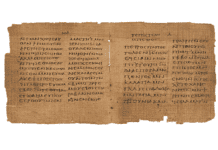For a question about the U.S. Constitution, only 27 percent of respondents correctly answered that there’s “no religious test” for holding federal office.
Why These Results Are Important for Church Leaders
Although faith is about a relationship and not just facts, researchers say having religious knowledge influences how people view and treat one another. Those who know more about a particular faith tradition also tend to think more favorably of those who practice it, which could lead to more tolerance and peace.
“Religious knowledge might be connected with an important societal outcome like the level of interreligious understanding,” Smith says.
When survey respondents were asked to rate the overall favorability of various religions, Jews received the highest score (63 out of 100). Catholics and mainline Protestants were next (at 60), and evangelical Christians came in at 56. For atheists, Muslims, and Mormons, the average rating was about 50. Interestingly, evangelical Christians are rated most favorably by people at the low end of the religious-knowledge spectrum.
Experts encourage people of all ages to seek ongoing educational opportunities about faith—their own and other people’s. But they point to the importance of everyday interactions as well. Diverse friendships result in greater overall religious knowledge; for example, survey respondents who know someone from at least seven different faith groups answered an average of 19 questions correctly, while those who know a member of three or fewer groups answered an average of 8.6 questions correctly. The survey’s margin of error is 1.5 percentage points.
Parents and leaders who want to increase children’s faith knowledge should remain active and engaged with their own faith, says Pew’s Smith. “Having an interest in a religion can be connected with higher levels of knowledge about it,” he says.
Visiting different houses of worship also can provide entry-level insights about religions. “If you embrace a complex, rich, and dynamic understanding of religion, you’ll never exhaust the incredible array of religious expressions it’s possible to study,” says Diane Moore, director of Harvard Divinity School’s Religious Literacy Project.











